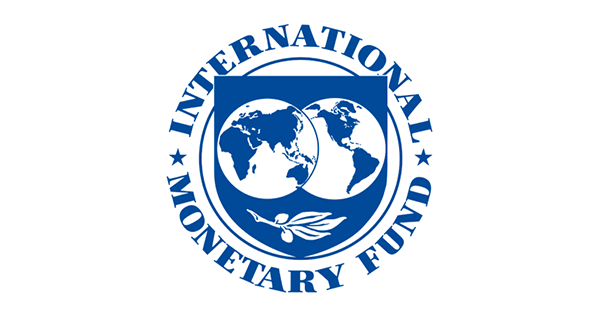IMF Staff Reaches Staff Level Agreement with Armenia on the Sixth Review of the 2022-25 Stand-By Arrangement (SBA) and request of a new 3-year SBA
October 16, 2025
- IMF staff and the Armenian authorities have reached a staff-level agreement on the sixth review under the current Stand-By Arrangement (SBA) as well as on policies under a new 3-year SBA.
- The new SBA, which the Armenian authorities intend to treat as precautionary, aims to support continuity in the government’s policy and reform agenda to maintain macroeconomic stability and foster sustainable and inclusive growth.
- Policy priorities include enhancing economic resilience, advancing a gradual fiscal consolidation by mobilizing tax revenues and prioritizing spending to maintain a moderate debt level, strengthening institutional frameworks, and continuing structural reforms to boost labor productivity, enhance trade diversification, and improve the overall business environment.
Yerevan, Armenia: An International Monetary Fund (IMF) team led by Alexander Tieman visited Yerevan from September 17-30, 2025, to conduct discussions for the Sixth review under the current Stand-By Arrangement (SBA) with Armenia and the authorities’ request of a new 36-month SBA. At the conclusion of the discussions, Mr. Tieman issued the following statement:
“The IMF team and the Armenian authorities have reached a staff-level agreement on policies for the completion of the sixth review under the three-year SBA as well as for a new 36-month, SDR 128.8 million (about US$175 million) SBA, which will continue to support Armenia’s economic reform program. The agreement is subject to approval by the IMF’s Executive Board later this year.
“Armenia’s economic activity remains robust, with real GDP growth of 5.6 percent in the first half of the year, driven by buoyant consumption and investment as well as strong tourism arrivals. Employment growth has remained steady, and inflation has temporarily picked up to 3.7 percent y/y in September, driven largely by food and services prices. The current account deficit has remained stable, reflecting strong domestic demand and normalization of goods trade, offset by strong tourism. Prudent execution of the 2025 budget has resulted in a small overall fiscal deficit of 0.4 percent of GDP through June 2025, which was lower than projected on the back of robust tax revenue performance, buoyed by strong economic activity, alongside under-execution in both current and capital expenditures. Central government debt remains moderate at 48 percent of GDP at end 2024. The banking system is highly profitable and features strong capital and liquidity buffers.
“Real GDP growth is expected to remain strong reaching about 5 and 5.5 percent in 2025 and 2026, respectively. Inflation is expected to remain around the Central Bank of Armenia’s (CBA) target by end-2025. Risks to this outlook stem mainly from the uncertainty related to the ongoing global trade tensions and potential slowdown in the growth of trading partners, and regional geopolitical risks. On the upside, growth could exceed expectations if net exports perform better than anticipated and if transport links underpinning the peace declaration are implemented more swiftly.
“The draft 2026 budget targeting a deficit of 4.5 percent of GDP, aims to preserve macro-fiscal stability while supporting Armenia’s priority spending needs, including on social protection, security, health, education, and infrastructure. Over the medium term, careful expenditure prioritization alongside tax policy efforts and strengthened revenue administration will continue to support a gradual fiscal consolidation to maintain debt at a moderate level. Reforms to strengthen medium-term fiscal planning, enhance public financial management—including through robust fiscal risk management and transparency—and bolster the public investment management framework remain critical to support fiscal efforts.
“Amid contained inflationary pressures and anchored inflation expectations, the current monetary policy stance is appropriate. In view of the significant uncertainty, the Central Bank of Armenia (CBA) should continue to monitor closely economic developments and inflation expectations and stand ready to adjust its policy rate as needed. The flexible exchange rate remains a key shock absorber, and the authorities’ commitment to maintaining adequate international reserve buffers is welcome. The CBA continues to vigilantly monitor financial sector risks and to upgrade its supervisory toolkit and capacity, including related to crypto assets.
“The government’s structural reform agenda appropriately focuses on strengthening economic resilience and fostering inclusive growth, including by boosting labor force participation among vulnerable populations, encouraging diversification in the country’s export basket and markets, and improving the business environment. Achieving these objectives requires timely and effective implementation of the authorities’ employment and export strategies, prioritizing governance reforms, and upgrading the insolvency framework to support quality investments.
“The IMF team thanks the Armenian authorities, private sector, development partners, and the diplomatic community for fruitful discussions and cooperation.”
IMF Communications Department
MEDIA RELATIONS
PRESS OFFICER: Wafa Amr
Phone: +1 202 623-7100Email: MEDIA@IMF.org
@IMFSpokesperson






